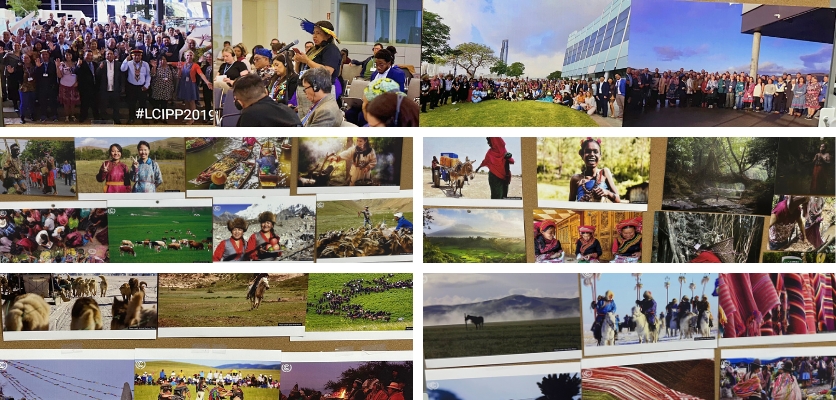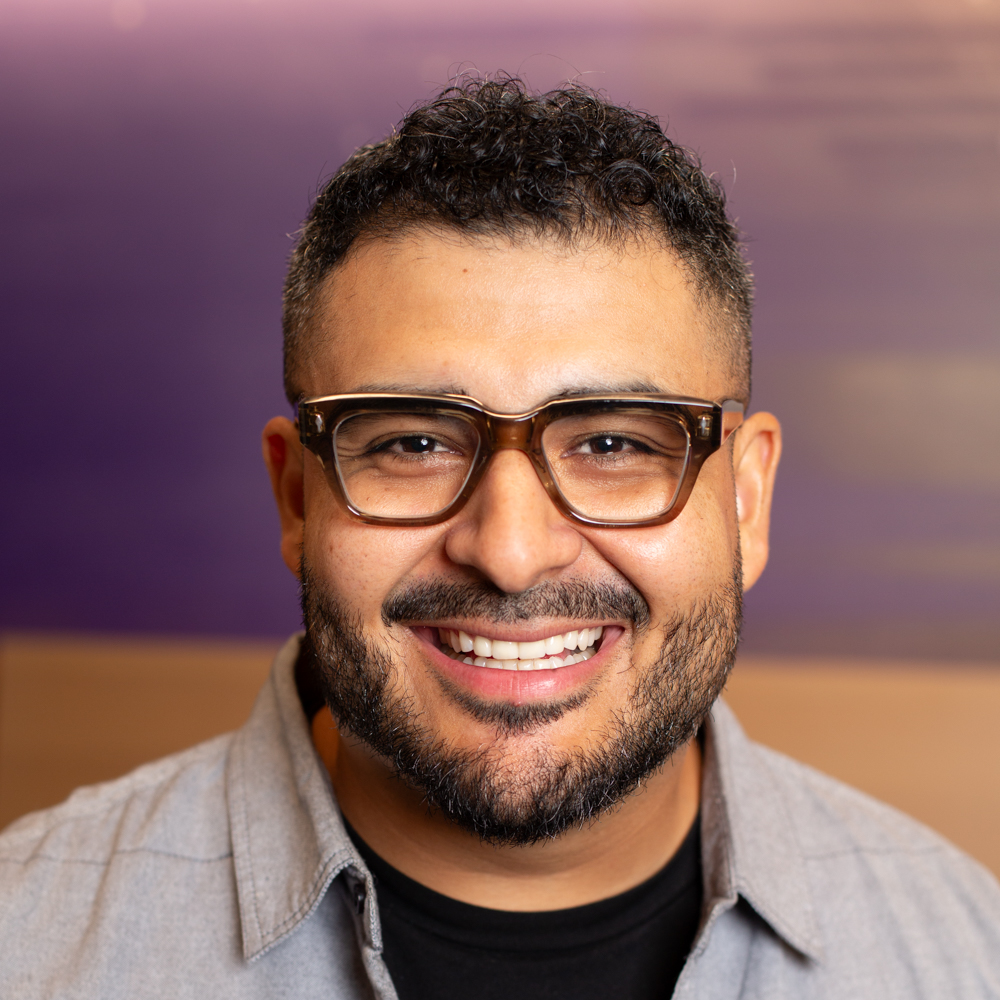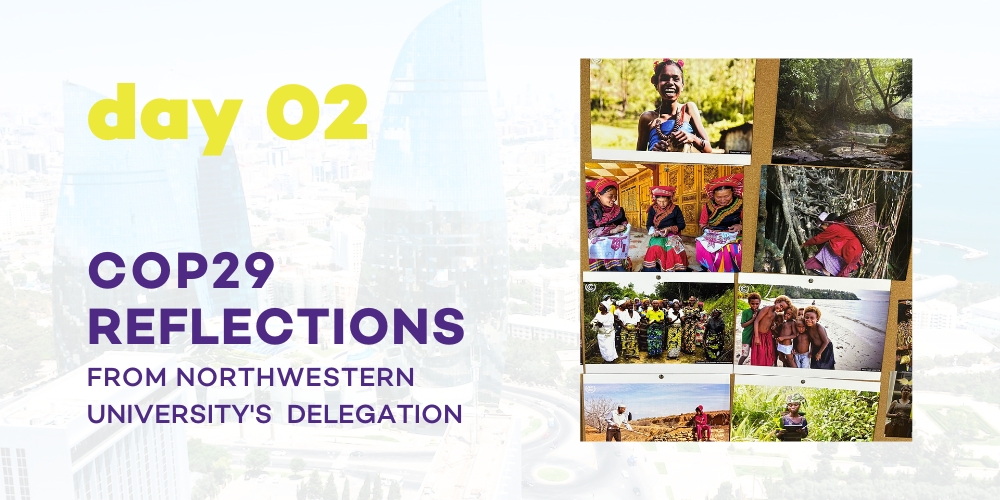Reflections from Northwestern University's COP29 Delegation: Day 2
For a fourth year, a delegation of Northwestern University students and faculty supported by the Buffett Institute is among more than 30,000 researchers, policymakers, industry leaders and activists at the world’s largest annual international treaty negotiations and climate summit, the 29th Conference of Parties (COP29) to the United Nations Framework Convention on Climate Change (UNFCCC), this year hosted in Baku, Azerbaijan. Each day, a different Northwestern delegate is blogging about their experiences and reflections. Day 2 features Miguel Angel Ovies-Bocanegra, a PhD candidate in the Department of Learning Sciences and a graduate student in the Master’s in Statistics and Data Science Program.
Dear Relatives,
I am writing to you from Baku, Azerbaijan. By the time you are reading these words, thousands are witnessing the gift of fellowship revolving around our responsibilities for Mother Earth.
Some of these responsibilities are interested in continuing a collective relationship with the lands, waters and relatives that have held us since time immemorial; some are dedicating their monetary and diplomatic ingenuity towards conservative climate finance; and a few, deeply lost, loved relatives are wandering towards commodified cliffs cuffed by the legacy of colonialism.
After a day of enclosed political kinship, I revisit the wind.
Moved by the restless, invisible forces of these lands, my mind with my body wander farther away from the daily imperial pressures.
I wonder.
I wonder about the new forever questions that are birthed by our sunlight. These forever questions humbly discern the relational architecture of our reality.
Illuminating our relations:
- How do we continue nourishing our lifeways that are ancestrally responsible and proleptically Indigenous—independent of the colonial condition?
- Living in a poly-justice world, does this require a collective understanding?
- Given that we belong to each other, how do we ethically re-engage in our unique daily, dignified, cultural practices with one another that poetically move us beyond our political commitments?
After the first breath, our collective gift reminds me of what it means to re-learn from the past. To listen. To observe. To touch and feel the stories of the lands and waters dancing with the seasons. To understand how our more-than-human family continues to invite us to be patient. To pause.
In part, this gift has shaped our current approaches to combating life-ending climate catastrophes primarily caused by our lost relatives.
Indigenous peoples from the Pacific, Arctic, North America, Central and South America and the Caribbean, Central and Eastern Europe, Russian Federation, Central Asia, Transcaucasia, Asia and Africa continue to share stories about the importance of the daily commitment to cultural practices. These practices range from caring for Mother Earth while she rests, to adapting cultural practices in concert with the seasons, intergenerational sense-making partnerships and the role of Indigenous languages in various spaces and places.
We continue to learn.
At this word, the sun shines towards Turtle Island, the moonlight spans my hotel room and I gaze through the midnight-polluted air from my window.
Again, I’m left to wonder.
If our newly developed ontological commitments live at the margins of an agenda, confined in a classroom, where youth and elders are divorced from one another, plants placed at the periphery, all the while neglecting the neighboring Caspian Sea, have we changed our relationship with the Natural World? Have our lost, loved relatives become blind to the light?
Again, I wonder—where do the edges of our light live?
Forever questions.

Miguel Angel Ovies-Bocanegra is a PhD candidate in the Department of Learning Sciences and a graduate student in the Master’s in Statistics and Data Science Program at Northwestern University. He explores the development of intergenerational, complex learning systems that bridge human and more-than-human knowledge aligned with the natural world. His research investigates the cultural, social and cognitive elements of learning environments and the affective landscapes that shape climate change education through Indigenous and diverse epistemic frameworks.

